Glucocorticoid receptor confers resistance to antiandrogens by bypassing androgen receptor blockade
- PMID: 24315100
- PMCID: PMC3932525
- DOI: 10.1016/j.cell.2013.11.012
Glucocorticoid receptor confers resistance to antiandrogens by bypassing androgen receptor blockade
Abstract
The treatment of advanced prostate cancer has been transformed by novel antiandrogen therapies such as enzalutamide. Here, we identify induction of glucocorticoid receptor (GR) expression as a common feature of drug-resistant tumors in a credentialed preclinical model, a finding also confirmed in patient samples. GR substituted for the androgen receptor (AR) to activate a similar but distinguishable set of target genes and was necessary for maintenance of the resistant phenotype. The GR agonist dexamethasone was sufficient to confer enzalutamide resistance, whereas a GR antagonist restored sensitivity. Acute AR inhibition resulted in GR upregulation in a subset of prostate cancer cells due to relief of AR-mediated feedback repression of GR expression. These findings establish a mechanism of escape from AR blockade through expansion of cells primed to drive AR target genes via an alternative nuclear receptor upon drug exposure.
Copyright © 2013 Elsevier Inc. All rights reserved.
Figures
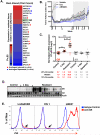
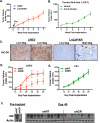

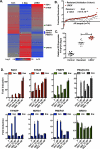
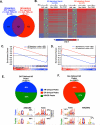
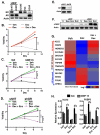
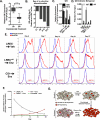
Comment in
-
Reappraisal of glucocorticoids in castrate-resistant prostate cancer.Asian J Androl. 2014 Sep-Oct;16(5):666. doi: 10.4103/1008-682X.133314. Asian J Androl. 2014. PMID: 24994787 Free PMC article.
References
-
- Chen CD, Welsbie DS, Tran C, Baek SH, Chen R, Vessella R, Rosenfeld MG, Sawyers CL. Molecular determinants of resistance to antiandrogen therapy. Nat Med. 2004;10:33–39. - PubMed
Publication types
MeSH terms
Substances
Associated data
- Actions
- Actions
Grants and funding
LinkOut - more resources
Full Text Sources
Other Literature Sources
Medical
Molecular Biology Databases
Research Materials

